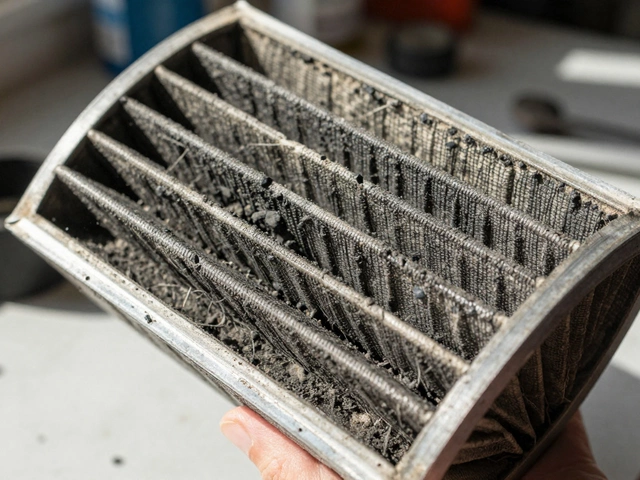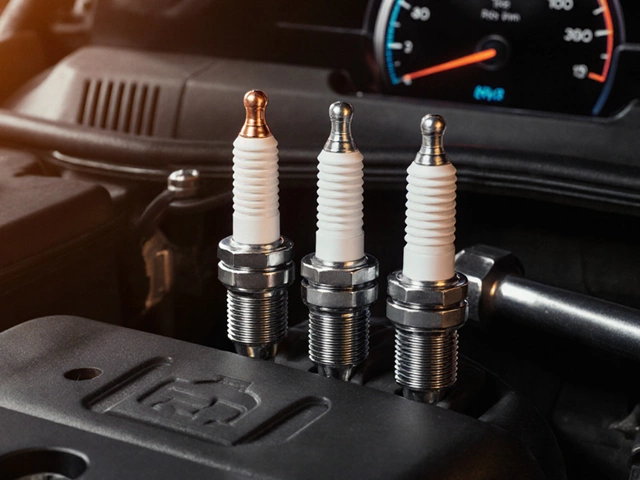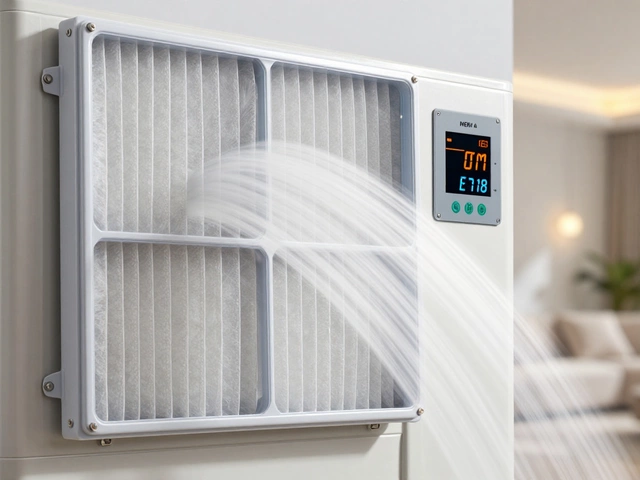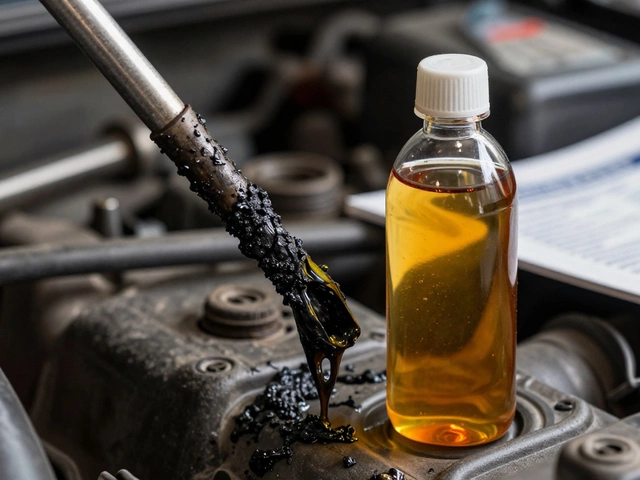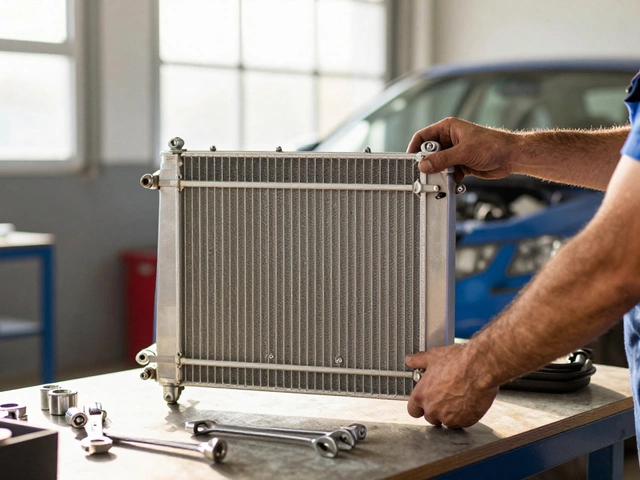
You ever wonder what’s quietly choking your car’s performance every time you drive to the shops or across town? Most folks don’t even stop to think about their air filter, but this unsung hero has a major say in how your engine breathes and how healthy your car stays. Neglect this one small part and you’ll eventually run into sluggish starts, poor mileage, and even headaches for your wallet. Recognising when your air filter's begging for a replacement doesn’t require a mechanic’s eye—it’s all about knowing what to look, feel, and even smell for every time you pop the bonnet. Today, I’ll go through what really happens when your air filter’s past its best, with grounded examples you can spot as easy as checking your phone notifications.
Why Air Filters Matter More Than You Think
You might picture an air filter as just a bit of paper or foam tucked in somewhere out of sight. But this little part has a massive job. Every minute your engine’s on, it’s sucking in air for combustion—thousands of litres an hour, in fact. This air has to be squeaky clean, or you’ll get more than just dust clogging up the works. In Bristol’s city centre or any heavy-traffic area, there’s all sorts floating in: pollen, grit, dust, even soot from those diesel vans up ahead. The air filter’s job is to trap all those tiny particles before they hit your engine’s innards.
Think of your lungs after a dusty jog—imagine your car doing that day in, day out. If the filter gets clogged, the engine has to work even harder just to get enough air, which means more fuel burned and less oomph when you press the pedal. Over time, a blocked filter leads to debris getting past, wrecking cylinders, pistons, and more. That’s not scare tactics. According to a test by the UK’s RAC, a severely dirty air filter can reduce engine life and cut fuel efficiency by up to 14%. Even newer engines with all their high-tech sensors are stuffed if they don’t get clean, unrestricted air.
On top of performance, your filter’s got your health in mind too. Bad air filters sometimes allow irritants inside the cabin, especially as they age or if they’re fitted wrongly. If you or your family suffer from allergies, letting things slide isn’t just bad for the car—it’s bad for you as well. Forget to swap out a dirty filter, and you’ll eventually breathe in whatever the last owner ignored.
Don’t assume filters last forever because your dashboard doesn’t scream whenever it’s dirty, like it does for low fuel or oil. Filters are designed to be replaced regularly, not babied. Whether you’re behind the wheel of a 10-year-old Focus or a nearly new hybrid, your engine needs that clean breath just the same. If you’re ever doubting whether changing this small part really matters, ask yourself: Do you want your next road trip bogged down by a wheezing engine, or smooth as clotted cream?
How to Spot the Warning Signs of a Dirty Air Filter
The hardest bit is, there isn’t a blinking light for a clogged air filter. You’ve got to rely on your own senses—eyes, nose, hands, even your ears sometimes. Some clues are subtle, while others can smack you in the face. Here’s how you can spot the signs before things get costly.
- Drop in power or sluggish acceleration: One of the most common symptoms is when your car just doesn’t pick up like it used to. Maybe there’s a slight lag when pulling away after a long stop at a roundabout. If it feels like you have to press the accelerator harder than usual to get moving, check your filter.
- Worse fuel economy: Noticed your trips to the petrol station are becoming more frequent? If you’re burning through more fuel despite driving the same routes, a blocked filter could be the cause. Engines compensate for less air by mixing in extra fuel, so your mileage suffers.
- Dirty or unusual sounds from the engine: You might hear coughing, popping, or strange whistling noises if the airflow’s disrupted. Any new sound, especially under load, is worth investigating.
- Black smoke or soot from the exhaust: Rare in modern cars, but if you notice darker exhaust fumes or charred residue around the tailpipe, a clogged filter might be to blame.
- Mouldy or musty smell inside: Sometimes, neglected filters can foster moisture and mould, especially if the car’s sat unused for weeks on end. If the vents blast a damp smell when you crank the fan, it’s probably time for a change.
- Visual check: Most air filters can be checked in two minutes flat. Just open the air box (usually a couple of clips or screws), pull out the filter, and hold it up to the light. If you can’t see daylight through the pleats or it’s coated in grime, swap it out.
These signals might pop up one at a time, or you might spot a few at once. The key is paying attention. Don’t shrug off small changes—what starts as a barely noticeable idle or faint smell could turn into a blocked filter killing your car’s mood entirely.

How Often Should You Change Your Car’s Air Filter?
This is where things get contentious. Pop open your owner’s manual and you’ll see suggestions from every 15,000 miles (about 24,000 km) to 30,000 miles. But life’s rarely this tidy. Bristol’s damp winters, summer building dust, or even a few months spent ferrying the kids to football matches on muddy lanes can coat a filter much faster than the book suggests. Officially, most manufacturers recommend replacement every 12 to 18 months or after a certain mileage.
But mileage isn’t the whole story. Driving conditions matter—city dwellers with endless stop-and-go, country drivers on gravel roads, or commuters stuck behind buses all day will need to swap filters earlier. If you’re hitting construction zones, or if it’s a bumper pollen year, check that filter at least twice a year. A quick check every 6 months won’t hurt, even if you end up changing it only once a year.
- Highway drivers covering big distances on clean motorways can sometimes stretch to 20,000 miles
- City drivers surrounded by taxis and lorries, or rural drivers in the mud, should check at 10,000 to 12,000 miles
- If your car sits more than it’s driven, damp and microbe build-up can ruin a filter even if the mileage is low
Some performance or reusable filters have longer intervals, but don’t just assume that means you’re off the hook—cleaning or replacing them should still be a habit. If you’re in doubt, swap it out. Most filters are cheap as chips compared to engine repairs or fuel wastage in a year, and you don’t need fancy tools to do it. It’s one of the few car jobs most people can manage on their drive or at the side of the road in minutes.
DIY Tips for Swapping Out Your Air Filter
You don’t have to be a mad car tinkerer or have fancy kit to do a filter change—it’s probably the easiest bit of car maintenance you’ll ever take on. Here’s how you can swap out your car’s air filter without breaking a sweat or losing bits down the engine bay.
- Pop the bonnet and look for the air filter housing. It’s usually a square or rectangular black plastic box with clips or Philips screws.
- Release the latches or undo the screws. Carefully lift off the lid. Remember how it's fitted for later—a photo on your phone helps.
- Pull out the old filter. Take a good look—if you can’t see daylight through it, or it’s blackened and gritty, it’s done for.
- Wipe out any loose bits from the housing, but avoid knocking any dirt down into the engine.
- Slide in the new filter, making sure it fits snugly and sits the same way as the old one.
- Secure the housing back down. Make sure everything is sealed, or you’ll let in unfiltered air—worse than a dirty filter.
Don’t forget to check the cabin air filter too, if your car’s got one. These are sneaky for building up mould, especially here in the UK where condensation is a battle half the year. If you use AC a lot or notice smells, change this filter at the same time. While you’re there, give any air ducts a gentle dust off with a soft brush or compressed air—but avoid using massive pressure that could damage anything.
Not sure which filter to buy? Pop along to your local motor factors with your reg number, or check reputable online shops. There’s a flood of cheap filters online but stick to well-known brands or those recommended by your car’s handbook. A dodgy filter might fit, but won’t catch all the dust and rubbish properly. Spending an extra fiver for quality is smarter in the long run.
Once you’ve changed the filter, listen to your engine purr and watch for better throttle response. You might notice a slight increase in power, smoother idling, or a small boost to your fuel economy. Keep a sticky note or set a calendar reminder for next time—a fresh filter each year is a simple tradition your car will thank you for.
